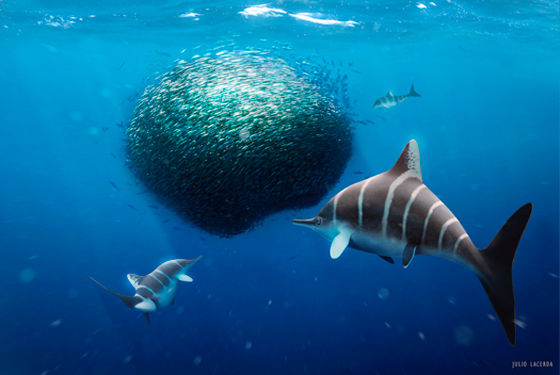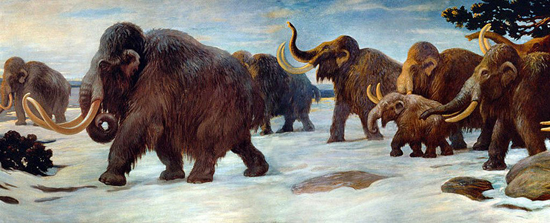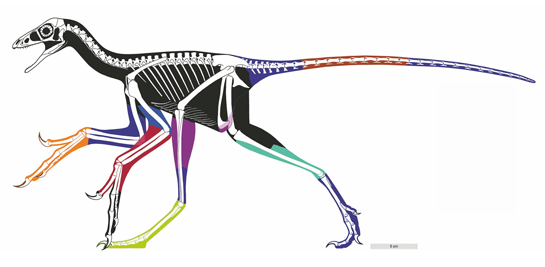Australian Scientist Warns of Marine Environment Mass Extinction Event
Our influence on the climate leading to global warming and the acidification of the oceans, over fishing and other human activities are leading to a sixth mass extinction according to an Australian study.
Extinction is the complete, global end for a species, mass extinctions are major reductions in the diversity of life and the geological fossil record shows that there have been five major extinction events in the Phanerozoic era (visible life – the last 545 million years). In a new paper published in the journal “Science” the fossil record of marine life suggests that this current environmental pressure on the oceans could lead to such dramatic extinctions that the world could take tens of millions of years to recover.
Sixth Mass Extinction
Dr John Alroy from Macquarie University in Sydney analysed the fossil record for oceans, dating back to the Cambrian period (over 500 million years), to study how major changes in marine animal groups take place.
In the Late Ordovician for example, many types of arthropods, molluscs, corals, graptolites and echinoderms became extinct. Extinction events are happening all the time, there is a “background” level of extinction and periodically this “background” rate increases. However, scientists recognise just five major extinction events in the geological record, the last, and perhaps the most famous being the mass extinction event 66 million years ago that saw the end of the dinosaurs.
Dr Aloy used an example from the greatest mass extinction event known to science – the Permian mass extinction, that occurred approximately 250 million years ago. Species of animals known as lamp shells, which had dominated sea-beds, were suddenly replaced by clams and snails.
He stated:
“The lamp shells were all over the place and diverse for a quarter of a billion years, then the biggest mass extinction in the history of life on earth happened – the Permian-Triassic extinction – and they went from being all over the place, to being rare and not very diverse.”
New Research Contradicts Hypothesis
Previously, scientists had thought that these mass extinctions were governed by the slow unwinding of predictable evolutionary “rules” that operated over hundreds of millions of years. However, this new research contradicts this hypothesis.
Dr Aloy commented:
“What my paper shows is that this story is fundamentally wrong, in that it doesn’t take into account the way a big evolutionary innovation or mass extinction can overturn the rules. The change in the balance of groups is not random. It’s not that some groups have good luck and some have bad luck. There has actually been a resetting of the rules of evolution.”
From our own perspective, at Everything Dinosaur we do believe that serendipity does have an effect on evolutionary success. For example, our species, H. sapiens are still around, but the Neanderthals are extinct. To become extinct the Neanderthals did not have to fail, just to be slightly less successful than competing species. Dr Aloy paints a bleak picture for the world’s oceans, human activities such as over-fishing, ocean acidification and the introduction of alien species are threatening to trigger a mass extinction event.
He added:
“It’s not just a mass extinction, but a massive reshuffling of species across the globe. We’re simultaneously ruining the environment and selectively wiping out certain groups.”
The research paper indicates that a combination of pressures and stresses could leave ocean biodiversity devastated, Dr Aloy stated:
“Things are so bad right now in so many different ways it’s very hard to imagine that you wouldn’t have a big long-term overturn in the balance of groups.”
Examining the Geological Record
The geological record shows that life on Earth took many millions of years to recover from such extinction events.
“It will take tens of millions of years before there is a full recovery with respect to the number of species in the ocean and the balance of groups. It will establish a new order that will persist for a very long time.”
Extinction is a consequence of natural selection and the interaction between ecosystems and the environment, a number of studies indicate that a large and diverse range of organisms are endangered or threatened with extinction. Indeed, a rough estimate often quoted is that one species of vertebrate goes extinct every day.
Visit Everything Dinosaur’s award-winning website: Visit Everything Dinosaur.






Leave A Comment